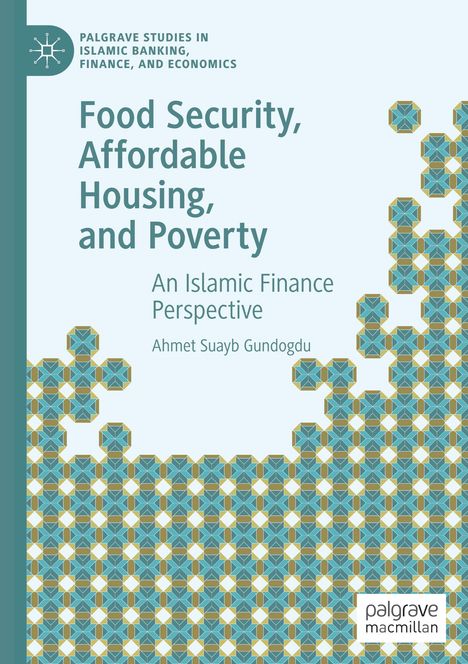Ahmet Suayb Gundogdu: Food Security, Affordable Housing, and Poverty
Food Security, Affordable Housing, and Poverty
Buch
- An Islamic Finance Perspective
lieferbar innerhalb 2-3 Wochen
(soweit verfügbar beim Lieferanten)
(soweit verfügbar beim Lieferanten)
EUR 125,17*
Verlängerter Rückgabezeitraum bis 31. Januar 2025
Alle zur Rückgabe berechtigten Produkte, die zwischen dem 1. bis 31. Dezember 2024 gekauft wurden, können bis zum 31. Januar 2025 zurückgegeben werden.
- Springer Nature Switzerland, 03/2024
- Einband: Kartoniert / Broschiert, Paperback
- Sprache: Englisch
- ISBN-13: 9783031276910
- Bestellnummer: 11801123
- Umfang: 212 Seiten
- Nummer der Auflage: 2023
- Auflage: 2023
- Gewicht: 281 g
- Maße: 210 x 148 mm
- Stärke: 12 mm
- Erscheinungstermin: 17.3.2024
Achtung: Artikel ist nicht in deutscher Sprache!
Weitere Ausgaben von Food Security, Affordable Housing, and Poverty
Klappentext
This book is the product of an attempt to look differently at the issue of poverty, along with food security and affordable housing. There is a tendency in conventional economics and finance literature to be apologetic when dealing with globally prevailing and unfair economic and financial systems. Islamic economics and finance academia is not immune from this tendency. The book aims to raise awareness about the root causes and suggests novel proposals that will lead to sustainable solutions. It is based on the understanding that if we continue doing more of the same things, we cannot expect to produce different results.This book is also premised on the understanding that the financial sector can promote economic progress only if it channels capital to the most productive use while avoiding moral hazard and adverse selection. The issue of collateral taking promotes a situation where financial institutions prefer to lend only too big-to-fail structures for shelter and food sectors that fuel poverty and inequality. This adverse selection ultimately gives rise to food security and affordable housing issues. This indicates that financial liberalization is not the solution to dealing with poverty and inequality. Instead, strong policy initiatives and financial regulations to direct capital to provide long-term sustainability are needed.


